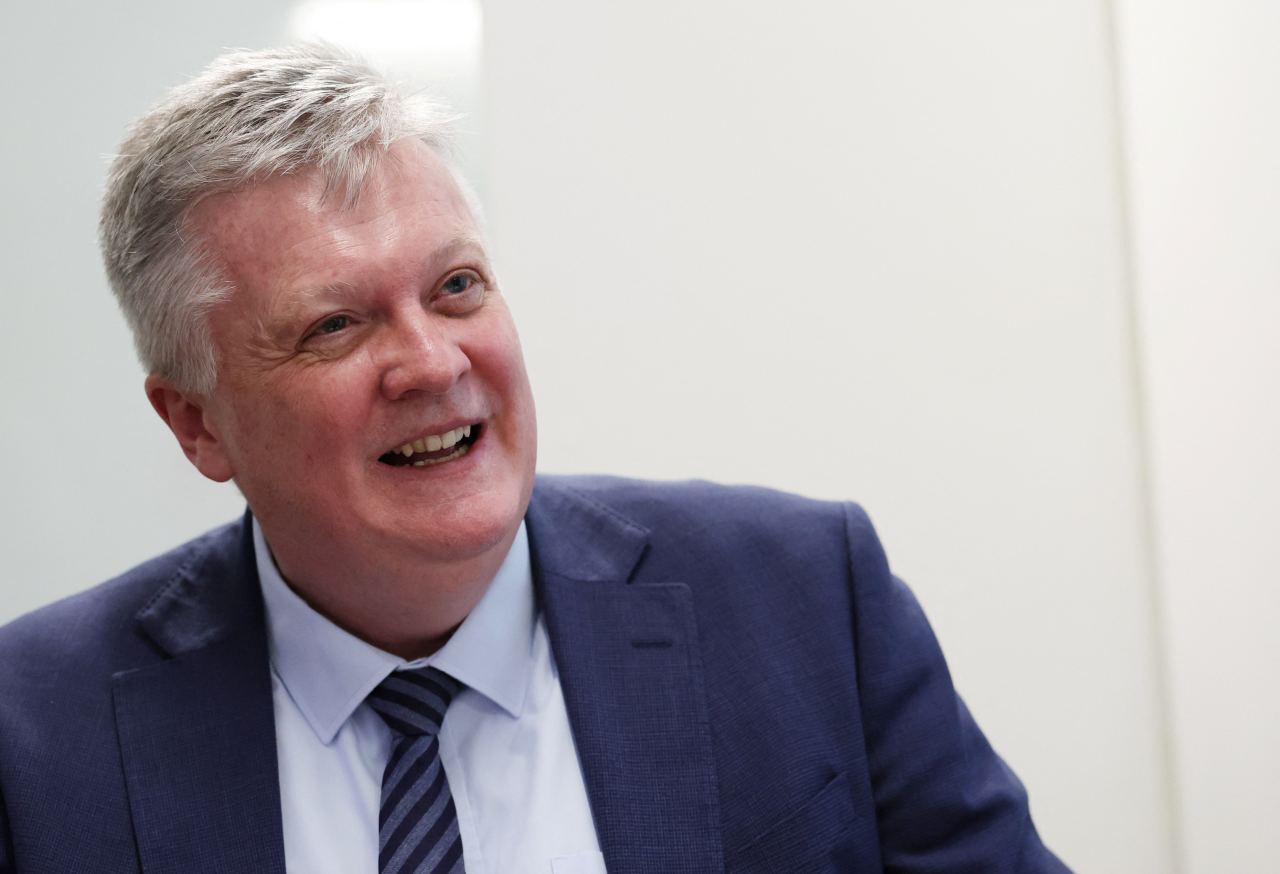World
Bank of England Chief Economist Urges Caution on Rate Cuts

The Chief Economist of the Bank of England (BOE), Huw Pill, has advocated for a more cautious approach to future interest rate cuts. Speaking on September 27, 2023, Pill emphasized that the ongoing high inflation rates should temper the pace at which the central bank reduces rates. This statement comes amid growing concerns about the economic stability in the United Kingdom.
Pill’s remarks highlight a significant shift in the BOE’s stance as it navigates a complex economic landscape. In recent months, the UK has grappled with persistent inflation, which remains above the central bank’s target. According to the latest data from the Office for National Statistics, the inflation rate stood at 6.7% in August, well above the 2% target set by the BOE.
Balancing Growth and Inflation Concerns
In his address, Pill outlined the delicate balance the BOE must strike between fostering economic growth and controlling inflation. He noted that while the economy shows signs of recovery, the persistent inflationary pressures warrant caution. “We need to be careful not to move too quickly on rate cuts, as the underlying inflation remains stubbornly high,” Pill stated.
The BOE has already undertaken a series of rate increases over the past year, raising the benchmark rate to 5.25% in an effort to combat inflation. These measures have had mixed effects on the economy, with many businesses and consumers feeling the impact of higher borrowing costs. Pill’s cautious tone suggests that the BOE may prioritize stability over aggressive monetary easing in the coming months.
Market Reactions and Future Outlook
The financial markets reacted to Pill’s comments with increased volatility. Investors are closely monitoring the BOE’s next moves, particularly regarding the timing and extent of any potential rate cuts. Analysts expect that the central bank will adopt a more measured approach, aligning with Pill’s call for caution.
Economic forecasts indicate that inflation may gradually decline, but the timeline remains uncertain. According to forecasts from the BOE, inflation could fall to around 3% by the end of 2024, yet this projection depends heavily on external factors, including energy prices and global supply chain issues.
Pill’s warning serves as a reminder of the challenges facing central banks globally. As they attempt to navigate the post-pandemic economic landscape, the BOE’s decisions will have significant implications for households and businesses across the United Kingdom.
As the situation evolves, the BOE will continue to assess economic indicators and adjust its policies accordingly. The commitment to a cautious approach reflects a broader understanding of the complexities at play in the current economic climate.
-

 Science4 days ago
Science4 days agoInventor Achieves Breakthrough with 2 Billion FPS Laser Video
-

 Top Stories1 week ago
Top Stories1 week agoCharlie Sheen’s New Romance: ‘Glowing’ with Younger Partner
-

 Entertainment1 week ago
Entertainment1 week agoDua Lipa Aces GCSE Spanish, Sparks Super Bowl Buzz with Fans
-

 Business1 week ago
Business1 week agoTyler Technologies Set to Reveal Q3 Earnings on October 22
-

 World1 week ago
World1 week agoR&B Icon D’Angelo Dies at 51, Leaving Lasting Legacy
-

 Entertainment1 week ago
Entertainment1 week agoMother Fights to Reunite with Children After Kidnapping in New Drama
-

 Science1 week ago
Science1 week agoNorth Carolina’s Biotech Boom: Billions Invested in Manufacturing
-

 Health1 week ago
Health1 week agoCurium Group, PeptiDream, and PDRadiopharma Launch Key Cancer Trial
-

 Health1 week ago
Health1 week agoCommunity Unites for 7th Annual Into the Light Walk for Mental Health
-

 Entertainment1 week ago
Entertainment1 week agoRed Sox’s Bregman to Become Free Agent; Tigers Commit to Skubal
-

 Health1 week ago
Health1 week agoNorth Carolina’s Biotech Boom: Billions in New Investments
-

 Top Stories1 week ago
Top Stories1 week agoDisney+ Launches Chilling Classic ‘Something Wicked’ Just in Time for October









